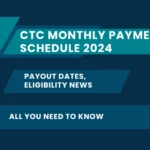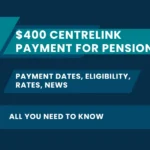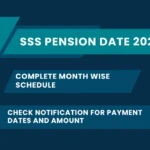The Government of Canada has revealed a one-time supplementary payment of $2,385 for individuals receiving monthly pensions through the Canada Pension Plan (CPP). This initiative is designed to support seniors facing challenges in managing their income amid rising living costs.
Prime Minister Justin Trudeau announced the CPP Additional One-Time Payment, which holds particular importance for CPP beneficiaries across Canada. In 2024, seniors enrolled in the Canada Pension Plan will receive this additional $2,385 from the government. Known as the CPP Extra One-Time Payment, this fund aims to help those struggling with their living expenses. It is crucial for eligible recipients to stay updated about this increase in their CPP benefits.
$2385 CPP Additional One-Time Payment
| Title | $2385 CPP Extra One Time Payment For Seniors In September 2024 |
| Country | Canada |
| Month | September |
| Agency | Canada Revenue Agency CRA |
| CPP Payment | Canada Pension Plan |
| Objective | Financial Support |
| Frequency of the Pension payment | Monthly |
| Mode of the Payment | Direct Deposits or physical cheques |
| CPP Extra Payment 2024 | $2385 |
| Official Web Portal | www.canada.ca |
$2,385 CPP Extra Payment – September 2024
The Canadian government regularly provides one-time payments to assist its citizens in easing financial challenges. These payments may target seniors, adults, or children to improve their financial security. Understanding the details of the CPP Extra Payment is essential, including the $2,385 CPP Additional One-Time Payment date, eligibility requirements, and tax implications. This guide will offer thorough information on these aspects.
For more details about the $2,385 CPP Extra One-Time Payment for seniors in September 2024, please refer to the full post.
CPP One-Time Payment of $2,385
The Canada Pension Plan (CPP) currently allocates 25% of pensionable income to beneficiaries, reflecting an increase from the previous year. Between 2019 and 2023, the government introduced the first supplementary component to the pension system and is now preparing to implement a second component, scheduled for launch in 2024.
As part of this new implementation, pensioners will receive a one-time payment of CAD 2,385, which will be deposited into a separate bank account in addition to their regular monthly CPP payments. The CPP serves as a national social insurance program available to all Canadian residents, including employees and self-employed individuals who contribute monthly from their earnings.
Eligible participants can start receiving CPP benefits at age 60, but those who defer until after age 65 can access the full benefit amount. Claiming the full amount before 65 results in a 0.6% reduction in monthly payments for each month claimed early. Conversely, delaying benefits past age 65 provides a 0.7% increase in monthly payments, applicable until age 70.
The total contributions made throughout one’s working life significantly impact the monthly benefits received under the CPP. Designed to offer financial support to retirees, the CPP aims to ensure a degree of income stability in retirement. Understanding the timing of when to begin receiving CPP benefits is essential for maximizing financial outcomes for retirees.
Canada Pension Plan Eligibility 2024
The one-time additional payment of $2,385 under the Canada Pension Plan (CPP) is available to individuals aged 60 and older. To qualify for this payment, applicants must be either permanent residents of Canada or Canadian citizens.
A key requirement for eligibility for the $2,385 CPP Extra One-Time Payment in 2024 is that the applicant must have made at least one contribution to the CPP during their working life. Contributions from senior or retired individuals must also meet the established minimum and maximum thresholds set by the CPP.
This payment, scheduled for September, aims to provide financial support to eligible seniors who have participated in the CPP system.
How to Apply for CPP
- To obtain CPP benefits, individuals must submit an application, regardless of their eligibility status. If an application is denied, applicants can appeal the decision through the Canada Pension Appeals Board.
- Residents of Quebec are not eligible for CPP benefits, as the province has its own Quebec Pension Plan.
- Before starting the application process, Canadian citizens should prepare their Social Insurance Number (SIN) and banking information. If seeking pension sharing, it’s necessary to include the SIN of the spouse or common-law partner. For the child-rearing provision, applicants must provide the SINs and birth certificates of the children involved.
- It’s advisable to apply only when fully prepared, as applications can be submitted up to six months before the intended pension start date.
- The Canada Pension Plan application can typically be completed online, though some situations may require a paper application to be sent or delivered to a Service Canada Centre. The online application process consists of two main steps: completing the application online and submitting it electronically, followed by printing, signing, and mailing the signature page to Service Canada.
- To ensure a smooth application experience, gather all required documents beforehand.
CPP Payment Date 2024
Beneficiaries will receive their CPP payments directly in their bank accounts at the end of each month, as linked during the application process. Individuals can check the status of their CPP payments by logging into their MY CRA account, where they can view their current payment information.
CPP Payment Dates 2024
The CPP payment for April 2024 is set to be released on April 26, followed by the May payment on May 29 and the June payment on June 26. The scheduled release dates for CPP payments in 2024 are as follows:
| Month for Payout | CPP Payment Date 2024 |
| July | 29th |
| August | 28th |
| September | 25th |
| October | 29th |
| November | 27th |
| December | 20th |
Fact Check
Rumors about specific government checks frequently stem from misunderstandings of existing benefits or exaggerated claims circulating online. It’s crucial to rely on official sources for accurate and up-to-date information. Always verify details through government websites or trusted agencies to avoid misinformation.




